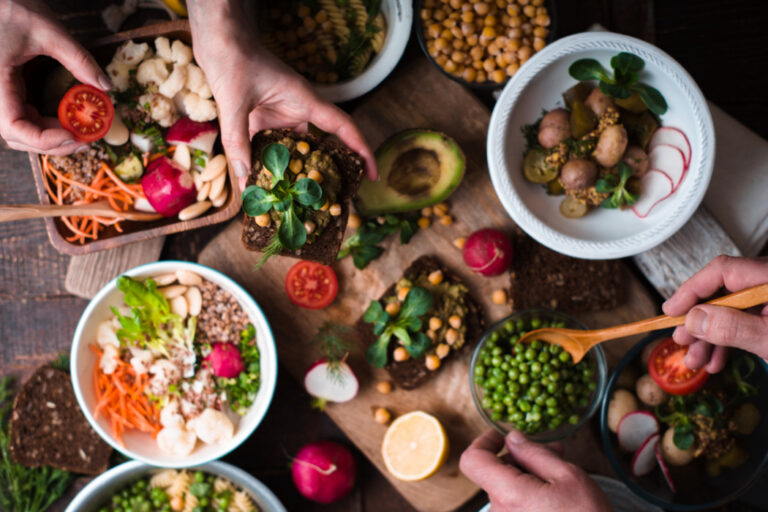
Today, we’ll be going through the best anti-inflammatory foods for every single season in 2022!
When your body activates your immune system, it sends out inflammatory cells that attack bacteria or heal damaged tissue. However, if your body sends out these inflammatory cells when you are not sick or injured, it can lead to chronic inflammation and further conditions such as arthritis or Alzheimer’s disease.
There are many foods that are anti-inflammatory and can really help you deal with the symptoms, but did you know that the best anti-inflammatory food option changes based on the time of the year/season? It’s true!
So, today, we’ll be going through the best anti-inflammatory foods for every single season in 2022!
What is inflammation?
Before we get started, let’s explain exactly what inflammation is.
When your body encounters an offending agent (like viruses, bacteria or toxic chemicals) or suffers an injury, your immune system is activated. Your immune system sends out its first responders: inflammatory cells.
These cells respond by trapping bacteria and other offending agents or start healing injured tissue. The result can be pain, swelling, bruising or redness.
Make no mistake: Inflammation is a natural feature of the body’s healing mechanism. Inflammation is the reason your knee will swell when you injure it. It is the first step of recovery. However, if it goes awry and lasts too long, it can lead to major health problems such as arthritis, heart disease or cancer.
By regularly including and consuming anti-inflammatory foods as part of your diet will help you reduce the risk of detrimental inflammation.
What are the symptoms of inflammation?
The most common symptoms of inflammation include:
- Flushed skin
- Pain or tenderness
- Swelling
- Heat
- Abdominal/Chest Pain
- Fatigue
- Fever
- Joint pain or stiffness
- Mouth sores
- Skin rash
The best anti-inflammatory meal?
Research from Harvard found that eating in-season anti-inflammatory foods has far greater benefits for the body than eating out-of-season alternatives. Natalie McCormick, a Harvard researcher, said the goal is to add as much anti-inflammatory foods to your diet as combinations work better than individual foods.
In fact, McCormick goes as far as to say that Mediterranean diets that include foods such as fruits, veg, whole grains, legumes and healthy fats such as nuts and olive oil provide a template for perfect anti-inflammatory meals. The added benefits of a Mediterranean diet are that it also excludes foods that increase levels of inflammation such as processed snacks, red meat and sugary drinks
Anti-inflammatory foods for every season
Spring: Anti-inflammatory foods
In Spring, you need to opt for or include the following in your diet:
- Asparagus
- Apricots
- Avocados
- Rhubarb
- Carrots
- Mushrooms
- Celery
- Fresh herbs
Summer: Anti-inflammatory foods
In summer, anti-inflammatory produce is far more prevalent, which means a little bit more variety in what’s available:
- Blueberries, blackberries and strawberries
- Cherries
- Eggplant
- Zucchini
- Watermelon
- Green Beans
- Melon
- Okra
- Peaches
- Plums
Fall: Anti-inflammatory foods
During the fall season, the anti-inflammatory options open up a little bit more:
- Apples
- Cabbage
- Cauliflower
- Garlic
- Winter Squash
- Parsnips
- Peas
- Ginger
- Lettuce
Winter: Anti-inflammatory foods
And finally, for the cold months, the anti-inflammatory foods get green as leafy vegetables dominate the season:
- Kale
- Collard Greens
- Swiss Chard
- Beets
- Sweet Potatoes
- Turnips
- Kiwi
- Brussel Sprouts
- Lemons
- Oranges
- Pineapples
How to get more anti-inflammatory foods in your diet?
Whenever possible, you should try to substitute meals/food items with some of the anti-inflammatory options we’ve detailed above.
instead of a chocolate cake, turn to a fresh-berry fruit salad. Instead of fish and chips, ask for some sweet potato chips instead. Making small changes to your diet can have significant health benefits for you down the line.
Other ways to prevent inflammation
You can decrease your risk of chronic inflammation by:
- Achieving and maintaining a healthy weight.
- Avoiding or quitting smoking.
- Exercising 3-5 times per week
- Limiting your alcohol intake (maximum 2 ounces per day).
- Managing stress (i.e. through meditation)
Conclusion
You should check in with your GP practice or your healthcare provider if you are experiencing some of the symptoms listed above. But if you are understanding of preventative practices, preemptively including anti-inflammatory foods in your diet can be a lifesaver … literally!
For more diet, nutrition and health updates, follow the Healthier Matters blog today!


